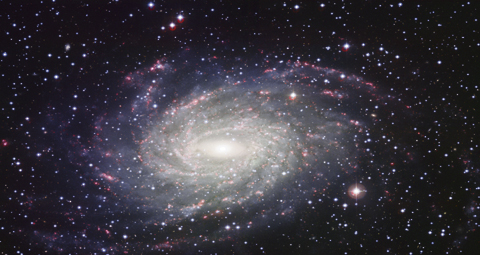September 25 | ![]() 0 COMMENTS
0 COMMENTS ![]() print
print

There are things beyond our imagination
Fr Ronald Rolheiser
Recently, at an academic dinner, I was sitting across the table from a nuclear scientist. At one point, I asked him this question: “Do you believe that there’s human life on other planets?” His answer surprised me: “As a scientist, no, I don’t believe there’s human life on another planet. Scientifically, the odds are strongly against it. But, as a Christian, I believe there’s human life on other planets. Why? My logic is this: Why would God chose to have only one child?”
Why would God choose to have only one child? Good logic. Why indeed would an infinite God, capable of creating and loving beyond all imagination, want to do this only once? Why would an infinite God, at a certain point, say: “That’s enough. That’s my limit. These are all the people I can handle and love! Anything beyond this is too much for me! Now is the time to stop creating and enjoy what I’ve done.”
Put this way, my scientist friend’s hunch makes a lot of sense. Given that God is infinite, why would God ever stop doing what God is doing? Why would God favour just us, who have already been given life, and not give that same gift endlessly to others? By what logic, other than the limits of our own mind, might we posit an end to creation?
We struggle with this because what God has already created—both in terms of the immensity of the universe and the number of people who have been born in history—is already too much for our imagination to grasp. There are billions and billions of planets, (right) with trillions of processes happening on each of these every second. Just on our planet, earth, there are now more than seven billion people living, millions more have lived before us, and many more are being born every second. And inside of each of these persons there is a unique heart and mind caught-up in an infinite and complex array of joys, heartaches, and moral choices.
Moreover, all of these trillions of human and cosmic processes have been going on for millions and billions of years. How can we imagine a heart and a mind somewhere that knows and loves and cares intimately about every individual person, every individual joy, every individual heartache, every individual moral choice, and every individual planet, star, and grain of sand, as if it were an only child?
The answer is clear: It cannot be imagined. To try to imagine this is to end up either in atheism or nursing a false concept of God. Any God worth believing in has to be able to know and love beyond human imagination, otherwise the immensity of our universe and the uniqueness of our lives are not being held inside the loving care of anyone’s hand and heart.
But how can God know, love, and care for all of this immensity and complexity? Moreover, how will all these billions and billions of people go to Heaven, so that all of us end up in one body of love within which we will be in intimate community with each other? That’s beyond all imagination, at least in terms of human capacity, but my hunch is that Heaven cannot be imagined not because it is too complex, but because it is too simple, namely, simple in the way Scholastic philosophy affirms that God is simple: God so embodies and encompasses all complexity so as to constitute a reality too simple to be imagined.
It seems too that the origins of our universe are also too simple to be imagined: Our universe—in so far as we know it—had a beginning and scientists believe (The Big Bang Theory) that everything originated from a single cell of energy too tiny to measure or imagine. This single cell exploded with a force and an energy that is still going on today, still expanding outward and creating billions and billions of planets in its wake. And scientists believe that all of this will come back together again, involute, sometime in a future which will take billions of more years to unfold.
So here’s my hunch: Maybe the billions and billions of people, living and dead and still to be born, in both their origins and in their eventual destiny, parallel what has happened and is happening in the origin, expansion, and eventual involution of our universe, that is, just as God is creating billions and billions of planets, God is creating billions and billions of people. And, just as our physical universe will one day come back together again into a single unity, so too will all people come together again in a community within which God’s intimate love for each of us will bring us together and hold us together in a unity too simple to be imagined, except that now that union with God and each other will not be unconscious, but will be known and felt in a very heightened, self-conscious gratitude and ecstasy.
— Fr Ronald Rolheiser is a priest and member of the Missionary Oblates of Mary Immaculate. He is president of the Oblate School of Theology in San Antonio, Texas. Visit his website at www.ronrolheiser.com










